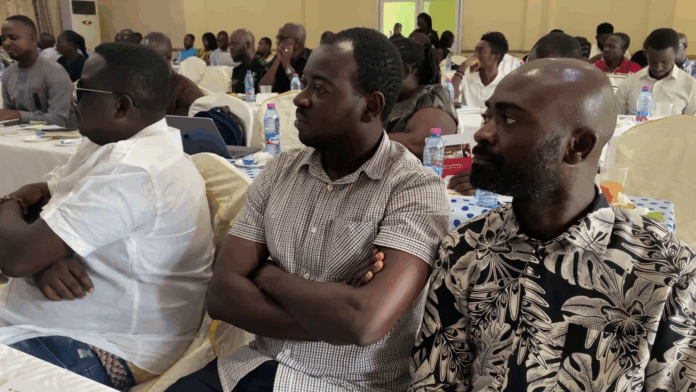The Forestry Commission is allaying fears among local timber industry players who contend the issuance of the Forest Law Enforcement, Governance and Trade (FLEGT) license is a bane to their operations.
The Commission says the legal regime that allows timber exports to the European market is a means to check illegal logging and foster proper forest governance, ultimately enhancing productivity in the local industry.
In 2024, the Lands and Natural Resources Ministry signed an agreement with the European Union for the issuance of the Forest Law Enforcement, Governance and Trade license.
Ghana becomes the second country globally and first in Africa to issue the legal license by the close of June 2025.
This voluntary partnership agreement is a significant step in the country’s commitment to trade in legal timber and wood products to combat illegal logging and promote good forest governance.
“Before the FLEGT and VPA license, people were able to mix illegal material and mill them for export. But with this the system will track and know the source of wood,” Research and Statistics Manager at the Forestry Commission, Samuel Mawuli Doe, noted.
As part of sensitization efforts ahead of the official issuance, the Forestry Commission organized a two-day workshop, bringing together stakeholders in both the downstream and upstream sectors of the timber industry.
Participants were exposed to the rudiments in obtaining the license for exportation of timber to the European market and its benefits to the local industry.
In 2024, Ghana exported timber products estimated at 125 million euros.
Acting Director of the Timber Industry Development Division of the Forestry Commission, Dr. Richard Gyimah, highlights the importance of the industry in complementing the government’s 24-hour economy.
“If the timber industry is vibrant, it means we will be creating more jobs, and people will be improving on their livelihoods. It has a very big supply chain,” he noted.
The issuance of the FLEGT license also affirms the country’s openness to serve as a model for other countries that want to pursue the path towards issuing FLEGT licenses.
Eric Hayford Eshun of the Commission explains benefits of the new license to local industry players.
“Through this license the industry players will be sending legal wood to the EU market and that would make them more competitive and attract buyers,” he said.





